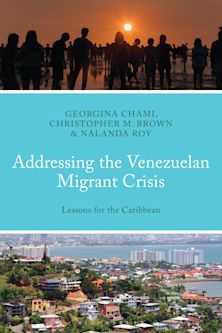- Home
- ACADEMIC
- Politics & International Relations
- Politics - Other
- Freedom is Not Enough
Freedom is Not Enough
Black Voters, Black Candidates, and American Presidential Politics
Freedom is Not Enough
Black Voters, Black Candidates, and American Presidential Politics
This product is usually dispatched within 3 days
- Delivery and returns info
-
Free CA delivery on orders $40 or over
You must sign in to add this item to your wishlist. Please sign in or create an account
Description
Black voters can make or break a presidential election-look at the close electoral results in 2000 and the difference the disenfranchised Black vote in Florida alone might have made. Black candidates can influence a presidential election-look at the effect that Jesse Jackson had on the Democratic party, the platform, and the electorate in 1984 and 1988, and the contributions to the Democratic debates that Carol Moseley Braun and Al Sharpton made in 2004. American presidential politics can't get along without the Black vote-witness the controversy over candidates' appearing (or not) at the NAACP convention, or the extent to which candidates court (or not) the Black vote in a variety of venues. It all goes back to the Voting Rights Act of 1965 which formally gave African Americans the right to vote, even if after all these years that right is continuously contested. In Freedom Is Not Enough (a quote from Lyndon Johnson's 1965 commencement address to Howard University just before he signed the Voting Rights Act), Ronald W. Walters traces the history of the Black vote since 1965, celebrates its fortieth anniversary in 2005, and shows why passing a law is not the same as ensuring its enforcement, legitimacy, and opportunity.
Table of Contents
Chapter 2 Leverage Politics and the 1984 and 1988 Jackson Campaigns
Chapter 3 Black Mobilization in the Presidential Elections of 1992, 1996, and 1998
Chapter 4 Diluting Black Voting Power: The Supreme Court in the 1990s and the 2000 Presidential Election in Florida
Chapter 5 Election Reform: Revisiting the Right to Vote
Chapter 6 Leverage Politics and the 2004 Primary Election Scenario: The Sharpton and Moseley Braun Campaigns
Chapter 7 Black Turnout and the 2004 Presidential Election
Chapter 8 The 1965 Voting Rights Act: Leveraging the Power of the Black Vote
Product details
| Published | Jan 10 2007 |
|---|---|
| Format | Paperback |
| Edition | 1st |
| Extent | 256 |
| ISBN | 9780742548060 |
| Imprint | Rowman & Littlefield Publishers |
| Dimensions | 228 x 148 mm |
| Series | American Political Challenges |
| Publisher | Bloomsbury Publishing |
About the contributors
Reviews
-
The most American thing you can do is vote. History informs the present, action shapes the future. Freedom is Not Enough reminds us we must understand where we've been as a society if we are to move forward to realize a new American dream for all people.
Russell Simmons, chairman and CEO, Rush Communications; co-founder and chairman, Hip-Hop Summit Action Network; co-founder and president, Rush Ph
-
Freedom is Not Enough constitutes a serious evaluation of the current status of Black voters in the American political system by a distinguished political scientist. I recommend the book highly and would assign it as required reading in my courseson African American and minority politics....
Katherine Tate, University of California, Irvine; author, Black Faces in the Mirror: African Americans and Their Representatives in the U.S. Con
-
Walters carefully explains why the Democratic Party's most faithful constituency-African Americans-is the least rewarded and appreciated and what can be done about it. His solution: an independent political strategy for African Americans.
Mary Frances Berry, University of Pennsylvania
-
Professor Ronald Walters reminds us of the empowerment objective of black voting, that was so much the goal of those whose work and sacrifices led to the passage of the Voting Rights Act. That goal was at the center of my campaigns for President of the United States in 1984 and 1988, and Walters expertly summarizes and even codifies them, suggesting that if other such campaigns are mounted in the context of a movement for social change, they may also fuel the large turnouts necessary to use elections as a potent resource to improve the lives of those who participate.
Rev. Jesse L. Jackson Sr.
-
[Walters's] combination of statistics, theory, history, and analysis puts a lot of crucial information in one place.
Publishers Weekly
-
This is a must-read for those interested in black voting power as an important avenue for political inclusion.
Booklist



































